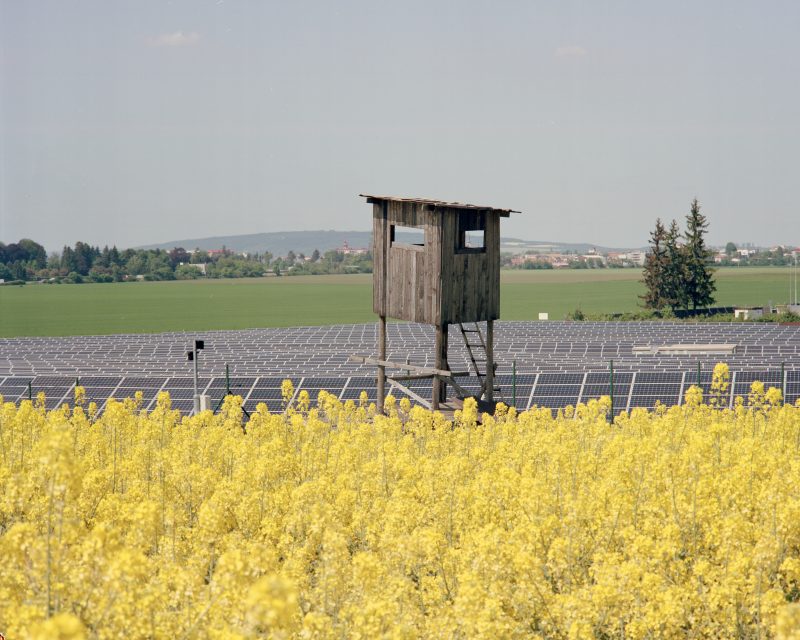Czech PM draws ire as rapeseed blossoms
Rapeseed is getting a bad rap in the Czech Republic (Michal Cizek)
Prague (AFP) – Shiny yellow rapeseed plants have sprung to life in the Czech Republic and angry residents blame their billionaire leader for infesting the country with the lucrative plant.
“People say it stinks, it’s ugly yellow, looks invasive. But you can’t blame the plant — the problem is in the way we’re using it,” says natural scientist Jakub Hruska from the Czech Academy of Sciences.
“By growing rapeseed we ruin the countryside, water, soil, biodiversity,” he told AFP, owing to the harmful effects of using too much fertiliser and herbicide.
With fields of rapeseed covering 16 percent of the Czech Republic’s arable land, it tops the charts as the European Union’s keenest grower.
Prime Minister Andrej Babis, who leads a minority centre-left cabinet, is widely seen as the chief benefactor because he made his fortune as owner of the Agrofert group, which covers the entire rapeseed-processing cycle.
Agrofert’s units grow rapeseed, produce fertilisers and pesticides, sell farming technology and process rapeseed into fatty acid methyl ester (FAME), or biodiesel, which is added to diesel fuel under a Czech law inspired by an EU directive on biofuels.
“The fertilisers and herbicides business is flourishing and Agrofert is there as a very tough and able player,” says Hruska.
The second wealthiest Czech, Babis claims he has transferred Agrofert to a trust to avoid a conflict of interest as prime minister and tycoon.
But the European Union recently voiced doubts about the move and launched a probe into Babis’s dual role as politician earmarking subsidies and tycoon getting them.
– Good money –
Rapeseed is used to produce FAME and for alimentary purposes, with each making up roughly half of total Czech output.
“Rape oil is ideal for frying, and rapeseed also serves as food for bees,” says independent farming analyst Petr Havel.
“But it’s also a highly cultivated plant, which makes it less resistant to pests, meaning it needs stronger chemical treatment,” he told AFP.
“The problem is the pesticides stay in the soil and are washed by rain into groundwater or rivers, and they also kill microorganisms, reducing biodiversity.”
But Czech farmers make good money with rapeseed — roughly twice as much as for wheat.
“There’s a good market for rapeseed which has this tax relief within biofuel production,” said Hruska.
“It’s Agrofert’s business model and they will do their best to preserve it.”
– ‘Biggest problem’ –
Babis came under fire from opposition politicians in April after the cabinet voted to preserve additions of the subsidised FAME to diesel.
In the Czech Republic, diesel must contain at least six percent of FAME which is mainly produced by Agrofert’s unit PREOL and it benefits from a tax break.
Veronika Vrecionova, a lawmaker for the right-wing opposition Civic Democrats, said the vote was “driven not by facts, but by the premier’s business interests.”
A group called “For a Czech countryside without rapeseed” has drawn thousands of fans on Facebook, while a protester at a recent anti-Babis rally displayed a poster with the premier saying “I want an almighty Agrofertistan”.
Havel and Hruska agree that so-called first-generation biofuels have outlived their usefulness because they fail to actually cut greenhouse gas emissions.
“Their environmental benefits are negligible,” said Hruska, adding that the carbon dioxide balance “may end up in the red” given the emissions generated during rapeseed production.
“Yet Agrofert will insist on using them because they have the power. I’d say this is the biggest problem.”
But a switch to the more eco-friendly biofuels seen in western Europe will take time because Czech companies are not ready technologically.
“Second-generation biotechnologies cannot be implemented on a mass scale now,” said Hruska.
“The government should propose a gradual switch. And it shouldn’t sleep on the technological change,” added Havel.
Disclaimer: Validity of the above story is for 7 Days from original date of publishing. Source: AFP.


